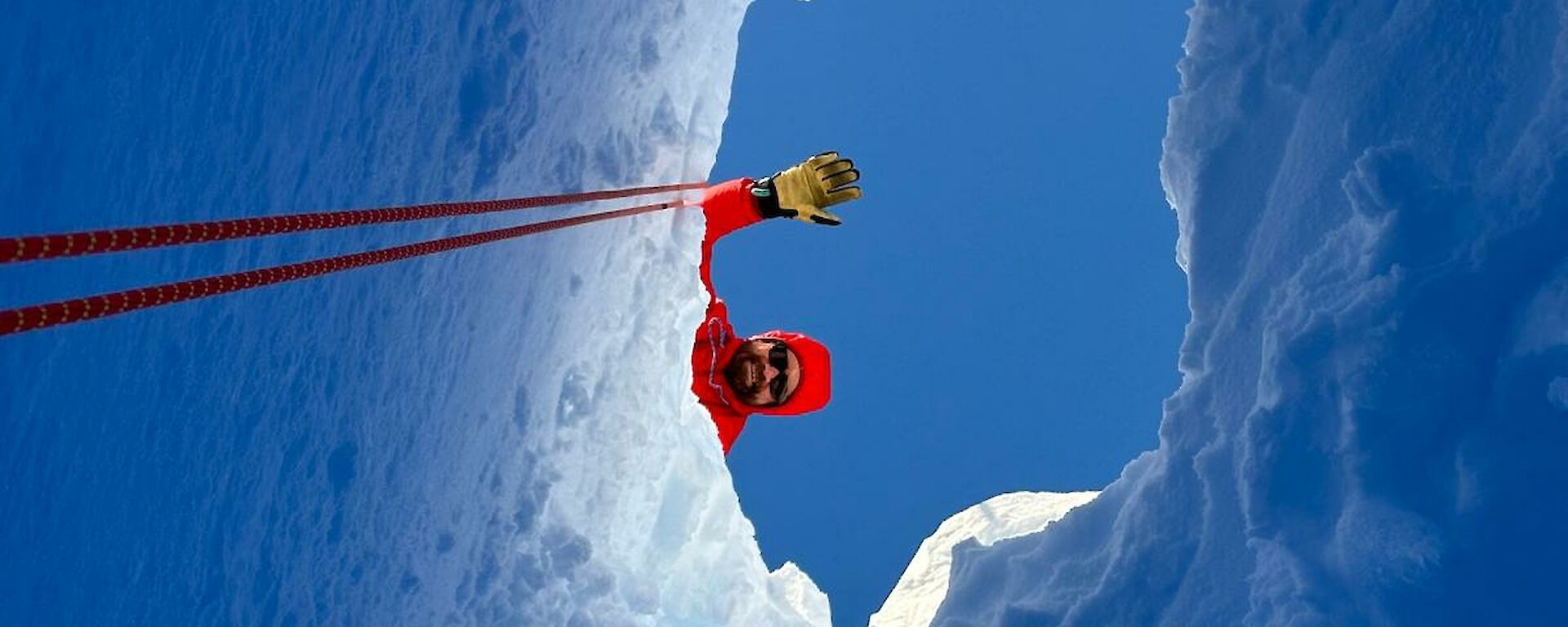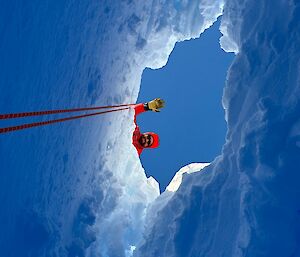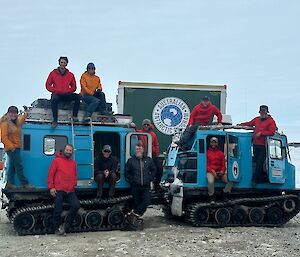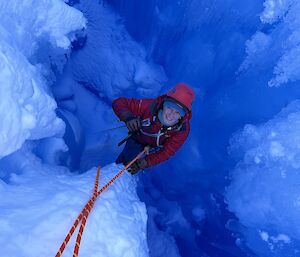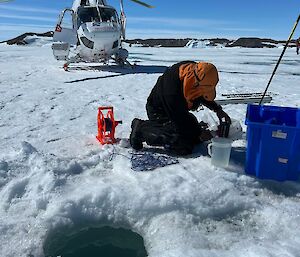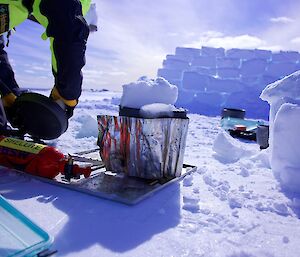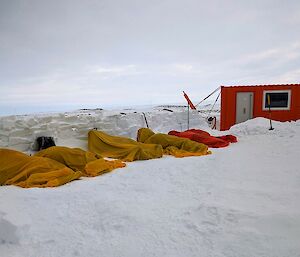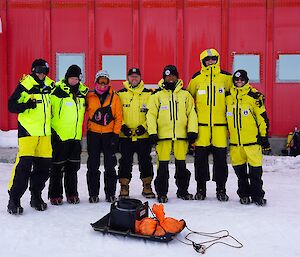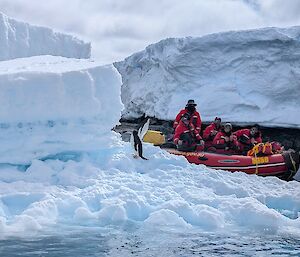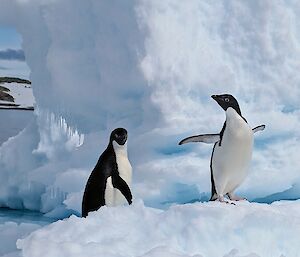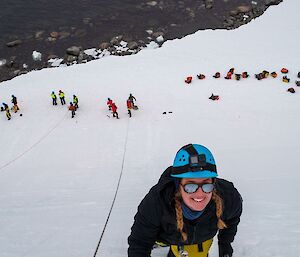This week at Casey: 07 March 2025
Well, what a fantastic season we have had here at Casey station. The wonderful team of field training officers (FTOs), apart from being ready to respond to a search and rescue at any time, have supported a swathe of successful science projects, delivered consistent crucial training to all on station and offered unique recreational opportunities to the vast majority of folks who have summered with us here this year.
Much of the summer was taken up by some FTOs delivering training. Our cohort of expeditioners were both 24hour survival trained – enjoying those nights building a snow wall and bivvying down in the famous chip packets – and then field travel trained, with folks enjoying a night in the magic of the huts and watching the penguin chicks grow at Robbo’s Hut boat ramp. Despite the order of life and the grand beauty of the polar bird known as a skua, we were relieved he didn’t manage to feed on one of the Robbo’s chicks.
During resupply, the FTOs joined forces with the watercraft operators and everyone welcomed a break from the 12-hour work shifts to cruise around Newcombe Bay enamoured by the penguins darting through the waters and launching themselves onto smaller icebergs known as bergy bits.
Adelie penguins move through the water at an average speed of five to eight kilometres per hour but can, if necessar,y flee those predatory leopard seals and maximise their retreat at 35km/hr.
Many FTOs were rostered into the deep field camp at the Bunger Hills, where many science projects were undertaken. Known as the Denman Terrestrial Campaign, this area offers important research into fast melting glaciers and the Shackleton Ice Shelf to help inform global climate change decisions.
FTOs supported a marine science study at the Bunger Hills, where three-metre holes were drilled through the sea ice to allow underwater drones to be deployed. The drones, known as remotely-operated vehicles (ROVs), were deployed to film and capture actual samples of marine life such as sponges, sea anemones, star fish and sediment.
Dr Sarah Thompson was ‘ground truthing’ glacial crevasses to correlate the accuracy of aerial surveying that was undertaken with ground penetrating radar. Both these important projects were assisted with the FTOs providing field safety.
For the first time, expeditioners were offered a top rope climbing experience. Expertly led by FTO Arno Payan, Casey crew were taught the techniques of moving over steep terrain in crampons and using ice axes. The French, American and German crampon techniques were introduced and while overlooking the splendour of Penny Bay, the capable FTO team delivered what proved to be a season highlight for many. The inquisitive Adelies visited the climbing site on most occasions with a squawk and a shuffle as if to say “Let me have a turn” “What’s going on here?” before retreating to the shore line again.
We have had a busy and happy team and the field store has been a hub of activity. The last remaining FTO is ready to face the winter alone.
Written by Liz Charlton, Winter Field Training Officer.

